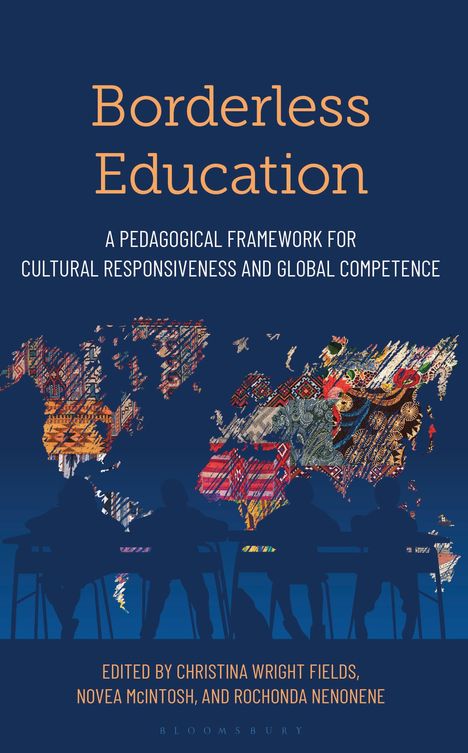Borderless Education, Gebunden
Borderless Education
- A Pedagogical Framework for Cultural Responsiveness and Global Competence
Sie können den Titel schon jetzt bestellen. Versand an Sie erfolgt gleich nach Verfügbarkeit.
- Herausgeber:
- Christina Wright Fields, Rochonda Nenonene, Novea McIntosh
- Verlag:
- Bloomsbury Publishing Plc, 05/2026
- Einband:
- Gebunden
- Sprache:
- Englisch
- ISBN-13:
- 9781538193914
- Artikelnummer:
- 12313360
- Umfang:
- 208 Seiten
- Gewicht:
- 454 g
- Maße:
- 254 x 178 mm
- Stärke:
- 25 mm
- Erscheinungstermin:
- 14.5.2026
- Hinweis
-
Achtung: Artikel ist nicht in deutscher Sprache!
Weitere Ausgaben von Borderless Education |
Preis |
|---|---|
| Buch, Kartoniert / Broschiert, Englisch | EUR 50,51* |
Klappentext
The context is clear, educators must develop comprehensive global competencies that are grounded in culturally responsive foundations to create classrooms that are inclusive and offer a curriculum that is rich in identities, relevant and borderless. This book builds on the work of scholars who have called for culturally relevant, responsive, and sustaining teaching and pedagogies in education. The goal of this text is to provide an intersectional global and culturally responsive teaching approach that offers futuristic possibilities of reimagining learning without borders. Opening the conversation for readers to consider dialogue, collaboration, and research between two fundamentally important pedagogical frameworks, that each have a long-standing legacy and impact in teacher education. In light of our educational ecosystem, now is a time for the convergence of these frameworks to fully incorporate the principles and practices of CRSP with the multifaceted elements of global competencies. The authors share a new globalized pedagogical framework that bridges the gap between CRSP and international teacher education. Additionally included is a comprehensive and practical lesson plan template to assist teachers with envisioning and operationalizing our globalized framework. The contributing author chapters share a variety of experiences, methods and programs that demonstrate the importance of infusing culturally centered global competencies into educator preparation and today's classrooms. The strategies offered demonstrate the necessity of intentionality in planning and design, as well as the nuances required to recognize and appreciate the cultural assets of all the students and families who make up our diverse communities. Each contributing chapter ends with a series of questions designed to elicit critical thinking; promote the development of human centered pedagogies; and inspire work that supports, inclusion, belonging and acceptance.

